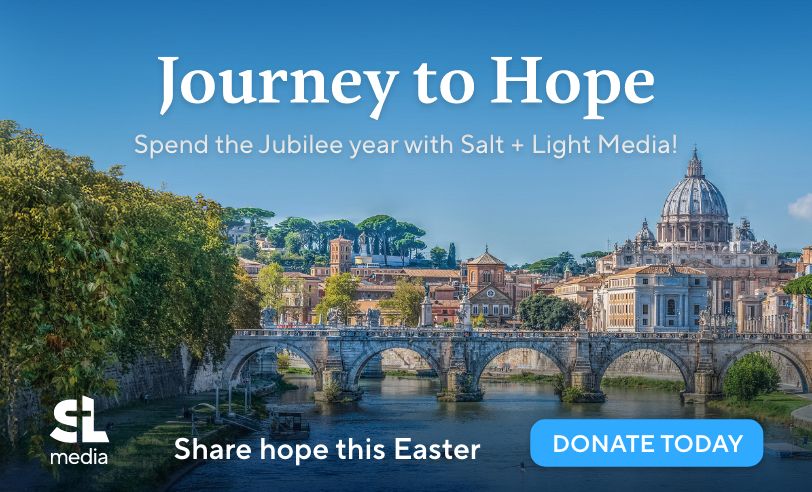

Bishops issue guide for youth with same-sex attraction
Kris Dmytrenko
Monday, June 27, 2011
Pastors, educators and parents must be attentive to young people experiencing a crisis due to homosexual feelings. The Canadian bishops makes this recommendation in Pastoral Ministry to Young People with Same-Sex Attraction, authored by the Episcopal Commission for Doctrine.
 The bishops begin by stating that “only what is true can ultimately be pastoral." As such, they outline an approach grounded in the teachings of the Church.
Echoing the Catechism, the document stresses that people with homosexual inclinations “must be accepted with respect, compassion and sensitivity.” They add that “every sign of unjust discrimination” towards people with same-sex attraction should be avoided. Those involved in their pastoral care must be careful not to perpetuate injustice or hatred, which the bishops acknowledge is “unfortunately still too common among us”.
The document articulates the Catholic philosophy of marriage and sexual complementarity, which explains the Church's opposition to homosexual acts (though she “never condemns” persons with same-sex attraction). For those who cannot marry due to a predominant same-sex attraction, the bishops concede that the call to chastity "involves suffering and difficulty". Yet they insist that this is not a call to a “loveless life”, but rather to a life of “generous love and true fulfillment”, following the example of Christ.
“More than ever,” the bishops insist, “the beauty of the Church’s teaching on human sexuality, which leads to authentic freedom, needs to be lived and convincingly preached by everyone.” The full document can be read on the CCCB website.
The bishops begin by stating that “only what is true can ultimately be pastoral." As such, they outline an approach grounded in the teachings of the Church.
Echoing the Catechism, the document stresses that people with homosexual inclinations “must be accepted with respect, compassion and sensitivity.” They add that “every sign of unjust discrimination” towards people with same-sex attraction should be avoided. Those involved in their pastoral care must be careful not to perpetuate injustice or hatred, which the bishops acknowledge is “unfortunately still too common among us”.
The document articulates the Catholic philosophy of marriage and sexual complementarity, which explains the Church's opposition to homosexual acts (though she “never condemns” persons with same-sex attraction). For those who cannot marry due to a predominant same-sex attraction, the bishops concede that the call to chastity "involves suffering and difficulty". Yet they insist that this is not a call to a “loveless life”, but rather to a life of “generous love and true fulfillment”, following the example of Christ.
“More than ever,” the bishops insist, “the beauty of the Church’s teaching on human sexuality, which leads to authentic freedom, needs to be lived and convincingly preached by everyone.” The full document can be read on the CCCB website.
 The bishops begin by stating that “only what is true can ultimately be pastoral." As such, they outline an approach grounded in the teachings of the Church.
Echoing the Catechism, the document stresses that people with homosexual inclinations “must be accepted with respect, compassion and sensitivity.” They add that “every sign of unjust discrimination” towards people with same-sex attraction should be avoided. Those involved in their pastoral care must be careful not to perpetuate injustice or hatred, which the bishops acknowledge is “unfortunately still too common among us”.
The document articulates the Catholic philosophy of marriage and sexual complementarity, which explains the Church's opposition to homosexual acts (though she “never condemns” persons with same-sex attraction). For those who cannot marry due to a predominant same-sex attraction, the bishops concede that the call to chastity "involves suffering and difficulty". Yet they insist that this is not a call to a “loveless life”, but rather to a life of “generous love and true fulfillment”, following the example of Christ.
“More than ever,” the bishops insist, “the beauty of the Church’s teaching on human sexuality, which leads to authentic freedom, needs to be lived and convincingly preached by everyone.” The full document can be read on the CCCB website.
The bishops begin by stating that “only what is true can ultimately be pastoral." As such, they outline an approach grounded in the teachings of the Church.
Echoing the Catechism, the document stresses that people with homosexual inclinations “must be accepted with respect, compassion and sensitivity.” They add that “every sign of unjust discrimination” towards people with same-sex attraction should be avoided. Those involved in their pastoral care must be careful not to perpetuate injustice or hatred, which the bishops acknowledge is “unfortunately still too common among us”.
The document articulates the Catholic philosophy of marriage and sexual complementarity, which explains the Church's opposition to homosexual acts (though she “never condemns” persons with same-sex attraction). For those who cannot marry due to a predominant same-sex attraction, the bishops concede that the call to chastity "involves suffering and difficulty". Yet they insist that this is not a call to a “loveless life”, but rather to a life of “generous love and true fulfillment”, following the example of Christ.
“More than ever,” the bishops insist, “the beauty of the Church’s teaching on human sexuality, which leads to authentic freedom, needs to be lived and convincingly preached by everyone.” The full document can be read on the CCCB website.Related Articles:
>>
SUPPORT LABEL
$50
$100
$150
$250
OTHER AMOUNT
DONATE
Receive our newsletters
Stay Connected
Receive our newsletters

Stay Connected









